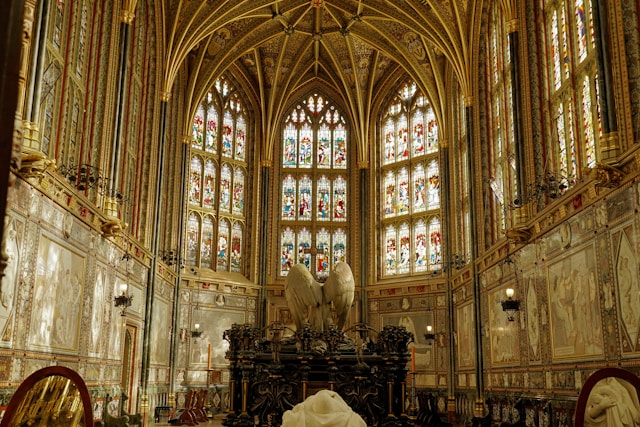Your cart is currently empty!
Unveiling the Apostolic Church: A Comprehensive Guide to Its History, Beliefs, and Practices

“`html
The Apostolic Church, also known as the Early Church, holds a significant place in Christian history. It encompasses the period from the life and ministry of Jesus Christ to the end of the first century. This era laid the foundation for the doctrines, practices, and beliefs that would shape Christianity for centuries to come. In this comprehensive guide, we will delve into the apostolic church, exploring its history, beliefs, and practices to gain a deeper understanding of its origins and impact.
Historical Context
The apostolic church emerged in the context of the Roman Empire during the first century AD. Palestine, a province of the Roman Empire, was the birthplace of Christianity. The early church faced persecution and opposition from both Jewish and Roman authorities. Despite these challenges, it experienced rapid growth and spread throughout the Roman Empire.
Key Events
- The life and ministry of Jesus Christ (c. 4 BC – 30 AD)
- The Pentecost (Acts 2): The descent of the Holy Spirit upon the disciples
- The martyrdom of Stephen (Acts 7): The first Christian martyr
- The conversion of Saul (Paul) to Christianity (Acts 9)
- The Council of Jerusalem (Acts 15): A gathering of church leaders to address the issue of Gentile inclusion
- The imprisonment and death of the apostles Peter and Paul in Rome
Beliefs
The apostolic church adhered to a core set of beliefs that formed the foundation of Christian doctrine. These beliefs were based on the teachings of Jesus Christ and the writings of the apostles.
Core Beliefs
- Monotheism: Belief in one God, the Creator of all.
- Trinity: Belief in God as Father, Son (Jesus Christ), and Holy Spirit.
- Jesus Christ: Belief in Jesus as the Son of God, the Messiah, who died for the sins of humanity.
- Resurrection: Belief in Jesus’ resurrection from the dead and His ascension into heaven.
- Salvation: Belief that salvation is a gift of God through faith in Jesus Christ.
Practices
The apostolic church engaged in various practices that expressed their beliefs and deepened their faith. These practices included:
Worship
- Gathering for worship on the first day of the week
- Participating in prayer, singing, and the reading of Scripture
- Celebrating the Lord’s Supper (also known as Communion)
Community
- Fellowship and sharing among believers
- Mutual support and care
- Baptism as a sign of faith and new life in Christ
Mission
- Witnessing to the Gospel of Jesus Christ
- Making disciples and spreading the Christian faith
- Planting new churches and establishing Christian communities
Challenges and Controversies
The apostolic church faced numerous challenges and controversies during its early years. These included:
Persecution
- Opposition and persecution from Jewish authorities
- Hostility and discrimination from Roman authorities
Internal Disputes
- The circumcision controversy (whether Gentile converts needed to be circumcised)
- Conflicts between Jewish and Gentile Christians
Heresies
- Gnosticism (a dualistic philosophical movement that taught salvation through knowledge)
- Docetism (a belief that Jesus only appeared to be human)
Legacy
The apostolic church laid the foundation for the Christian faith and played a pivotal role in shaping its history. Its beliefs, practices, and legacy continue to influence Christianity today. The writings of the apostles and early church leaders form the New Testament, which is an essential part of the Christian canon.
The apostolic church serves as a reminder of the origins of Christianity and the principles that guided the early followers of Jesus Christ. Its example of faithfulness, perseverance, and mission continues to inspire and challenge Christians today.
| Name | Role |
|---|---|
| Peter | Apostle, known as the “Rock” |
| Paul | Apostle to the Gentiles, author of many New Testament letters |
| John | Apostle, author of the Gospel of John and the book of Revelation |
| James | Brother of Jesus, leader of the Jerusalem church |
| Mary Magdalene | Disciple of Jesus, present at His crucifixion and resurrection |
Additional Resources:
“`